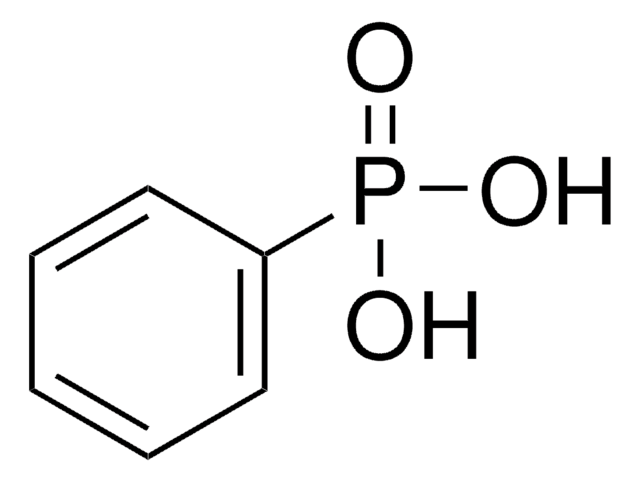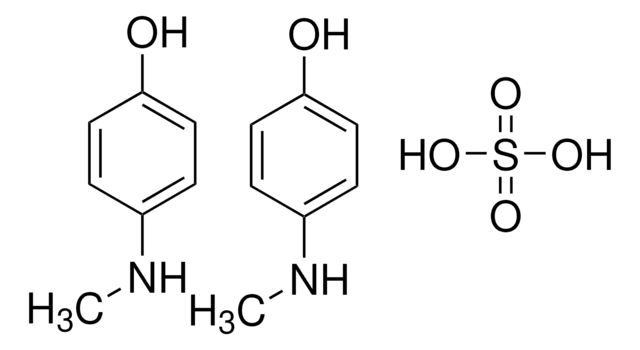All Photos(1)
About This Item
Linear Formula:
C6H5P(O)[O(CH2)7CH3]2
CAS Number:
Molecular Weight:
382.52
Beilstein/REAXYS Number:
2948496
EC Number:
MDL number:
UNSPSC Code:
12352100
PubChem Substance ID:
NACRES:
NA.22
Recommended Products
Quality Level
assay
95%
form
liquid
refractive index
n20/D 1.478 (lit.)
bp
207 °C/4 mmHg (lit.)
density
0.967 g/mL at 25 °C (lit.)
functional group
phosphonate
SMILES string
CCCCCCCCOP(=O)(OCCCCCCCC)c1ccccc1
InChI
1S/C22H39O3P/c1-3-5-7-9-11-16-20-24-26(23,22-18-14-13-15-19-22)25-21-17-12-10-8-6-4-2/h13-15,18-19H,3-12,16-17,20-21H2,1-2H3
InChI key
HAKMAMKAFTZXOZ-UHFFFAOYSA-N
Looking for similar products? Visit Product Comparison Guide
General description
Dioctyl phenylphosphonate is a plasticizer.
Storage Class
10 - Combustible liquids
wgk_germany
WGK 3
flash_point_f
235.4 °F - closed cup
flash_point_c
113 °C - closed cup
ppe
Eyeshields, Gloves
Choose from one of the most recent versions:
Already Own This Product?
Find documentation for the products that you have recently purchased in the Document Library.
S S Hassan et al.
Talanta, 54(6), 1153-1161 (2008-10-31)
Two novel uranyl PVC matrix membrane sensors responsive to uranyl ion are described. The first sensor incorporates tris(2-ethylhexyl)phosphate (TEHP) as both electroactive material and plasticizer and sodium tetraphenylborate (NaTPB) as an ion discriminator. The sensor displays a rapid and linear
Optimisation of poly (vinyl chloride) matrix membrane ion-selective electrodes for ammonium ions.
Davies OG, et al.
Analyst, 113(3), 497-500 (1988)
Masaaki Habara et al.
Biosensors & bioelectronics, 19(12), 1559-1563 (2004-05-15)
The higher sensitivity for sweeteners can be achieved by newly developed lipid/polymer membranes. The membrane is composed of lipids such as phosphoric acid di-n-hexadecyl ester and tetradodecylammoniumbromid, and a plasticizer, dioctyl phenylphosphonate. As a result of changing electric charge of
Iron ion sensor based on functionalized ZnO nanorods.
Khun K, et al.
Electroanalysis, 24(3), 521-528 (2012)
K Oohira et al.
Biophysical chemistry, 61(1), 29-35 (1996-08-30)
Electric characteristics of two kinds of membranes in response to NaCl and quinine were theoretically studied; one membrane composed of polyvinyl chloride (PVC) and dioctylphenylphosphonate (DOPP), and the other a lipid/PVC/DOPP membrane containing PVC, DOPP and a negatively charged lipid.
Our team of scientists has experience in all areas of research including Life Science, Material Science, Chemical Synthesis, Chromatography, Analytical and many others.
Contact Technical Service








